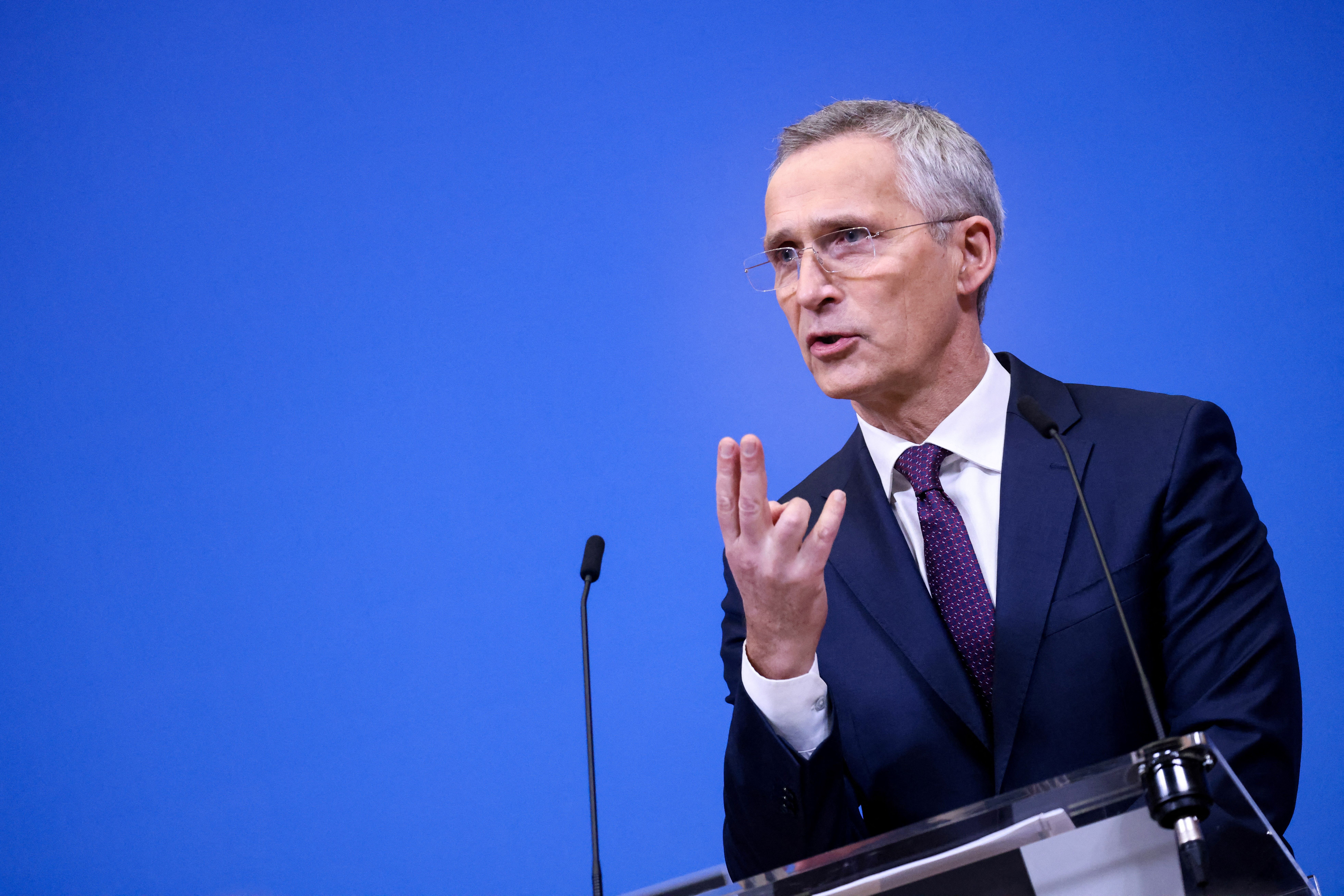NATO discusses increased defence spending; Belgian minister calls for "realism"

NATO member countries resumed discussions on increasing their defence spending in a meeting in Brussels this Wednesday, February 15. Germany favors 2% of the Gross Domestic Product (GDP) to become a minimum base, a perspective that Belgium finds difficult.
Russia's war in Ukraine has put the defence budget issue back on the table. It also promises to be one of the main topics at the Allied leaders' summit scheduled for July in Vilnius, Lithuania.
NATO's Secretary General Jens Stoltenberg declared in the meeting today that Russian President Vladimir Putin's "war of aggression" in Ukraine is "the biggest security crisis in Europe since World War II".
For several months, Stoltenberg has argued that significant investments are needed to modernize the North Atlantic Alliance's military capabilities. He considers that the commitment to aim for 2% of its GDP devoted to defence spending, assumed by the allies in 2014 during a summit in Wales, should be revised upwards.
Belgian position
The subject divides NATO members, though. Some countries, including Belgium, are cautious to set targets that might become too rigid.
"(That 2% target) we don't know how to hold it," admitted Belgian Defence Minister Ludivine Dedonder. She defended "realism", while claiming to have carried out the "reconstruction" of her department since October 2020, when Belgium then dedicated 1.02% of its GDP to defence spending.
The aim of Belgium's STAR plan (for "Security, Technology, Ambition, Resilience") approved last year by the government and parliament is to reach 1.57% by 2030. Last July, during a NATO conference summit in Madrid, Belgian Prime Minister Alexander De Croo stated Belgium's commitment to reach 2% by 2035.
"The 2% is good, but we must also ensure that we have a certain amount of flexibility because countries are different," Luxembourg's Defence Minister Francois Bausch said on Wednesday.
A senior US official told news agencies there are two different groups of allies. On the one hand, those geographically close to Russia, such as the Baltic countries and Poland, are pushing for more ambitious defence goals with a target of 2.5% of GDP devoted to military spending. Warsaw has announced its intention to dedicate 4% of its budget to defence in 2023. On the other hand, countries such as Canada, Spain, Luxembourg and Italy consider these objectives are not appropriate for their situation.
(VIV)
NATO Secretary General Jens Stoltenberg holds a press conference at the end of a two-day meeting of the alliance's Defence ministers at the NATO headquarters in Brussels on February 15, 2023. © BELGA PHOTO (Kenzo TRIBOUILLARD / AFP)